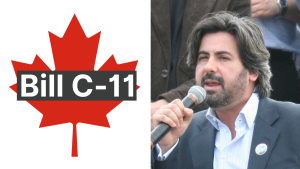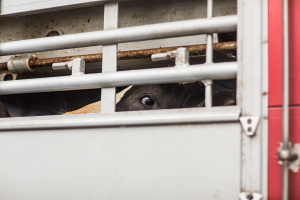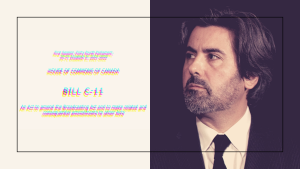Until recently free speech was highly valued among the left. It was historically associated with challenging the status quo, protecting the rights of marginalized groups, criticizing the state, and creating spaces for free and open inquiry.
Somewhere along the way, the left abandoned free speech as a fundamental value and the right has since stepped in to defend it. Leftists now lead the charge in restricting speech to protect certain sensibilities, particularly the speech of those on the right, and the right has responded in kind by protecting speech at all costs.
This marked shift has been especially noticeable in Canada where Canadians’ stance on free speech is largely shaped by their political affiliation.
A survey conducted by the Canadian Hub for Applied and Social Research at the University of Saskatchewan confirmed what has been made obvious to Canadians for some time: Leftists have long abandoned free speech and Conservatives have since taken up the free speech torch.
The survey found that 1 in 4 respondents, or 25% of Canadians who lean right to very-right believe Canadians have little or no freedom of speech compared to about 3 percent of left-leaning respondents who feel the same way.
The survey also found that 8 in 10 respondents believe that Canada’s approach to free speech is superior to the American approach. In other words, most Canadians agree on setting limits to speech and in punishing those who violate these rules. Canada has hate speech laws that stipulate Canadians can be imprisoned for up to two years for hate speech, while the First Amendment in the United States protects all speech — including hateful and offensive speech.
Unsurprisingly, only 2.5 percent of Canadians said they want no limits to speech.
Academics have bought into the narrative that free speech is somehow a ‘dog whistle’ (a buzzword often used by professional activists to dismiss ideas they disagree with) for the right — including one Barbara Perry, the director of the Centre of Hate, Bias and Extremism at Ontario Tech University, who the Canadian mainstream media selectively reached out to for comment about the survey results.
Perry says, “If we look at the narrative over the past few years, there has been an emphasis on cancel culture. Free speech has become a rallying call for the far-right. It’s always been there, but I think it was really amplified by the emergence of the alt-right in particular.”
She added, “American free speech absolutism” has gained in popularity in Canada, and she attributes this ‘absolutism’ to the internet and “the ease of access [for people] to spread whatever hateful, and misguided ideas they want.” It’s evident that Perry sees the American model as a little too free for her liking. She boldly presumes that anyone who supports free speech must be an absolutist or is somehow a far-right extremist. It’s not uncommon for academics like her to hastily make assumptions and reduce others to caricatures to drive their point home. Perry might do well to learn that many free speech advocates are not absolutists at all, nor are they extreme in their views. But this reflexive and dangerous association between free speech advocacy and ‘extremism’ is increasingly worrying as it is being churned out more regularly by the media.
Perry further makes her allegiance known by espousing one of the most common arguments used to discredit free speech: it’s harmful. “We’re not just talking about speech that’s offensive or hurts someone’s feelings, we’re really talking about dangerous speech and speech that has the potential to do real harm” [emphasis mine].
Perry, like others who argue against free speech, cites the ‘speech = harmful’ rhetoric as a way to discredit or silence speech she does not agree with. But Perry does not explain what constitutes dangerous speech, or what is real harm (as opposed to fake harm?), or even who decides what is harmful. And if we were to assume that speech can be harmful, by this logic, would an appropriate response to a harmful incident be physical violence? Put it this way, it’s a silly statement to make and one that creates more problems than it solves.
The survey comes on the heels of various anti-mandate campaigns and pro-freedom rallies that polarized the country. The pro-freedom rallies were widely denounced by liberals and the ruling establishment. Lawful protests across the country were condemned by faux progressives who suddenly took issue with using means of disruption to get their point across, and who sided with the very same actors they criticize on other issues, including CSIS, Canada’s spy agency. It should be noted that other actual violent actions perpetrated in the name of justice, including the string of church burnings, did not elicit the same level of condemnation and vitriol as the overwhelmingly peaceful protests. The opposite happened: pro-freedom protesters had their bank accounts frozen, others were imprisoned, some were doxxed and harassed. The social stigma alone was unprecedented.
Ordinary Canadians’ sentiments on speech align with the Liberal government’s push to quash speech on a national scale. The Liberal government has been putting in the work to curb speech under the guise of ‘patriotism’ (see: Bill C-11, the controversial bill that would give the CRTC the power to regulate online platforms); ‘fairness’ (see: Bill C-18, the bill that would undermine Canada’s news industry by rewarding mainstream media and punishing local journalists), and ‘safety’ (see: the Online Harms Bill that seeks to censor speech under the guise of protecting safety — consultations are still underway to determine what exactly constitutes ‘harm’).
Activists of all stripes have been sounding the alarm on these bills with many realizing a little too late that attempts to control speech can also impact them—it might not be today, but once passed, the impact of these bills will be felt nationwide. We are doing ourselves a great disservice by abandoning something that we once saw as a fundamental requirement to a thriving democracy. It is not the responsibility of any one party to save us from losing this fundamental right, but a responsibility of all Canadians to preserve this right. Canadian leftists have become so completely enamored by the state that they have let themselves believe and further regurgitate the notion that free speech is a ‘rallying call of the far right.’ It’s well past time we stand up for free speech once again.




